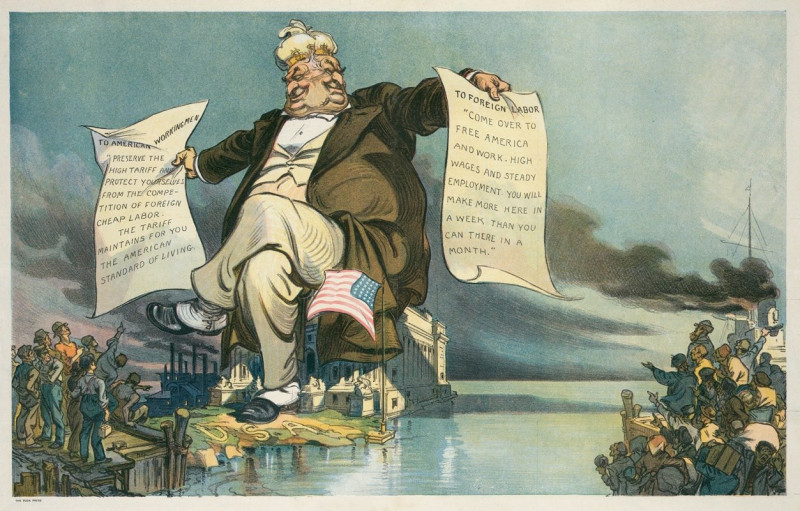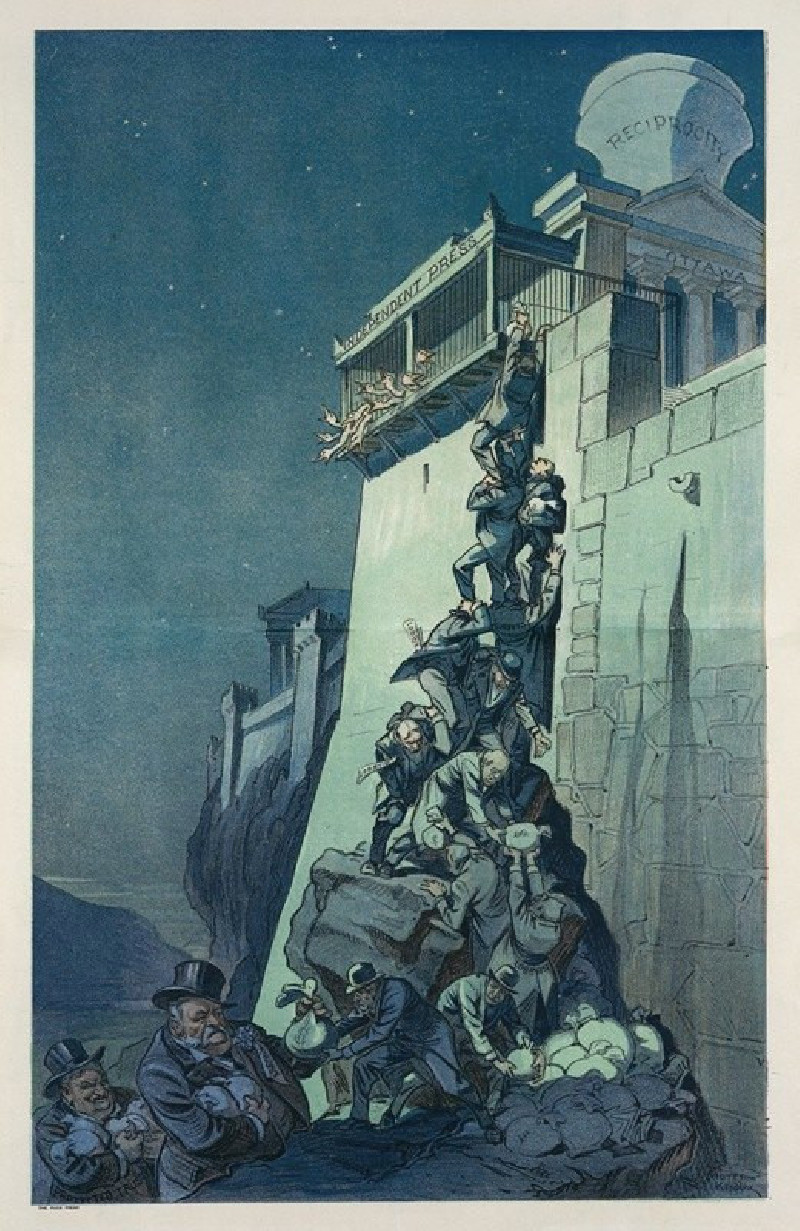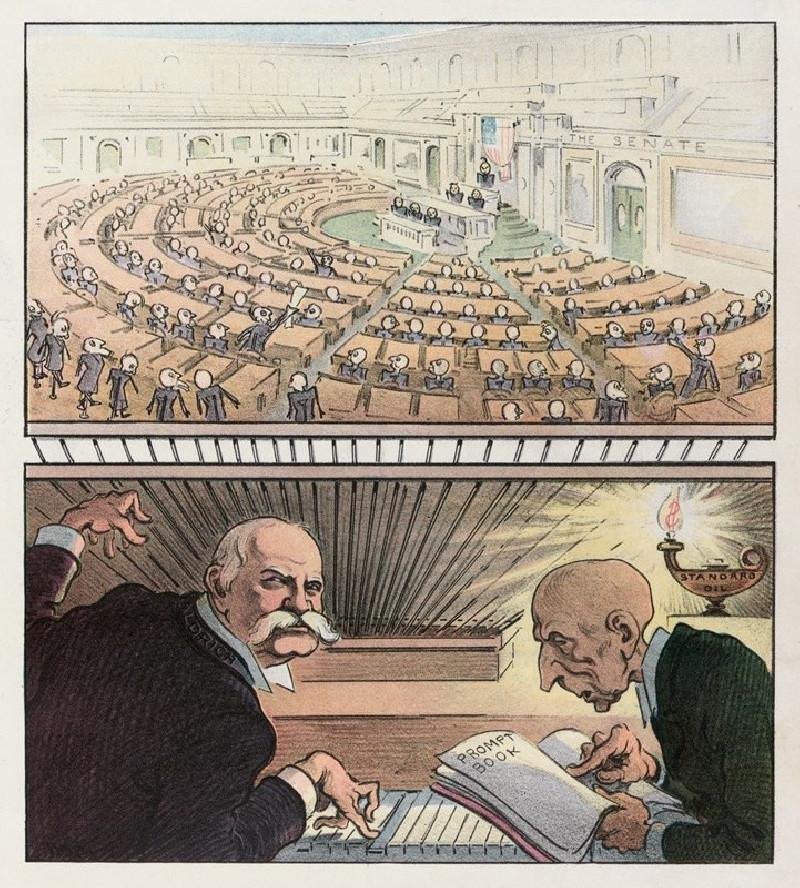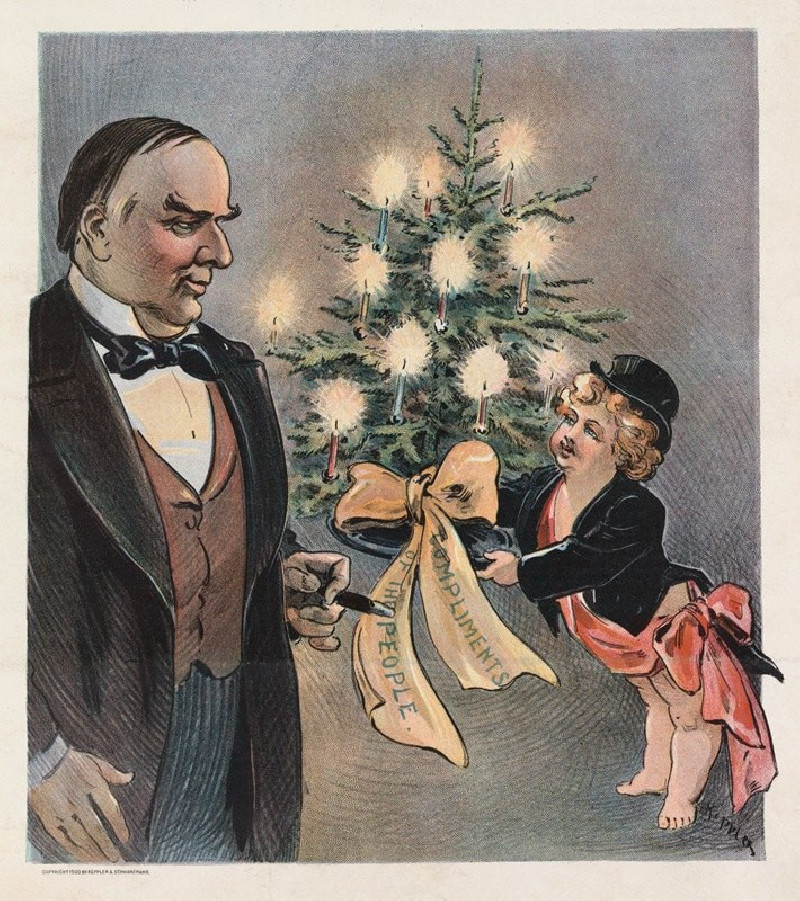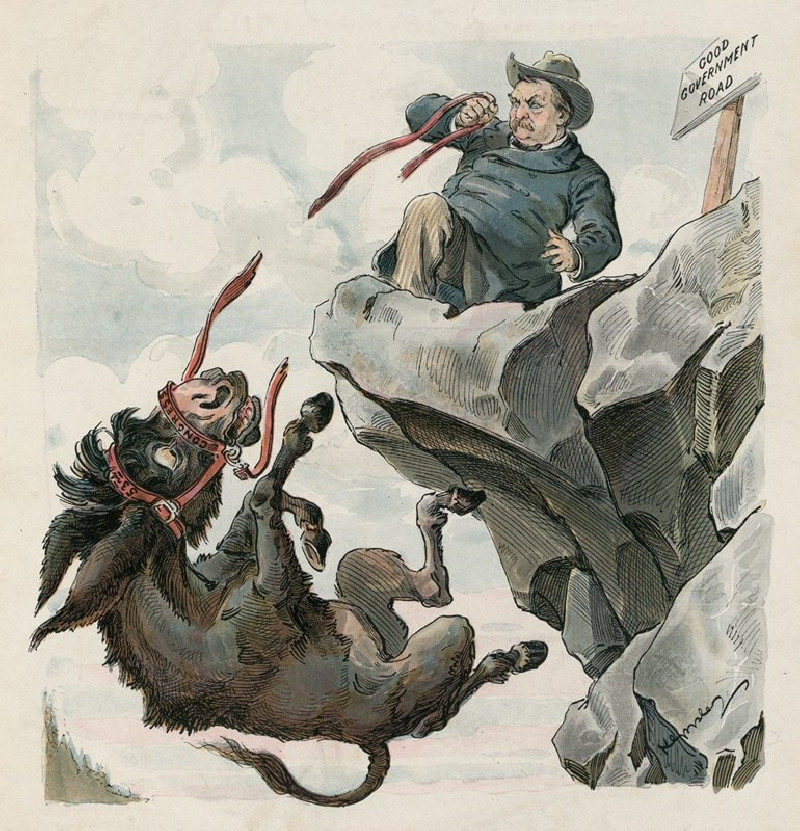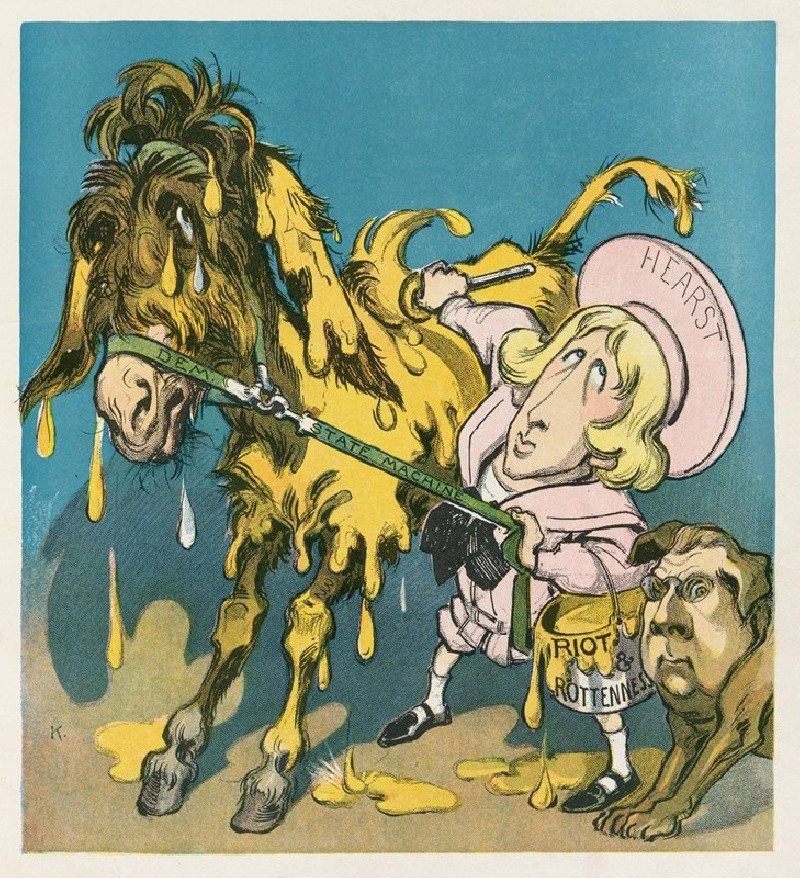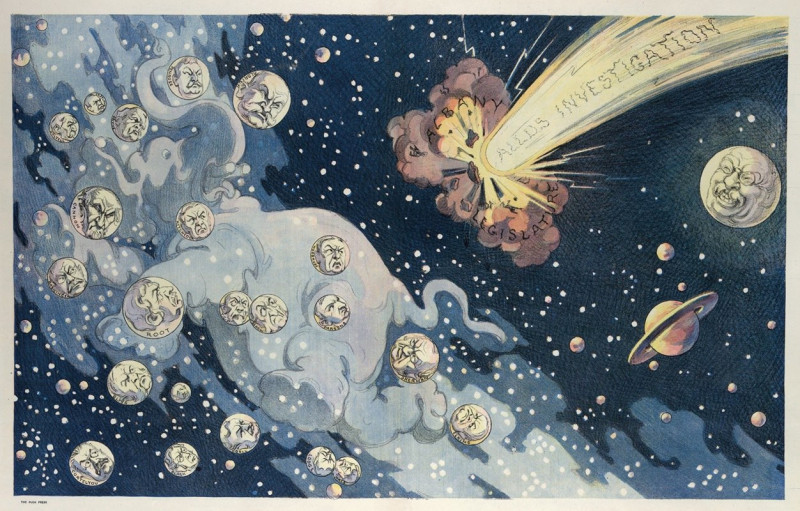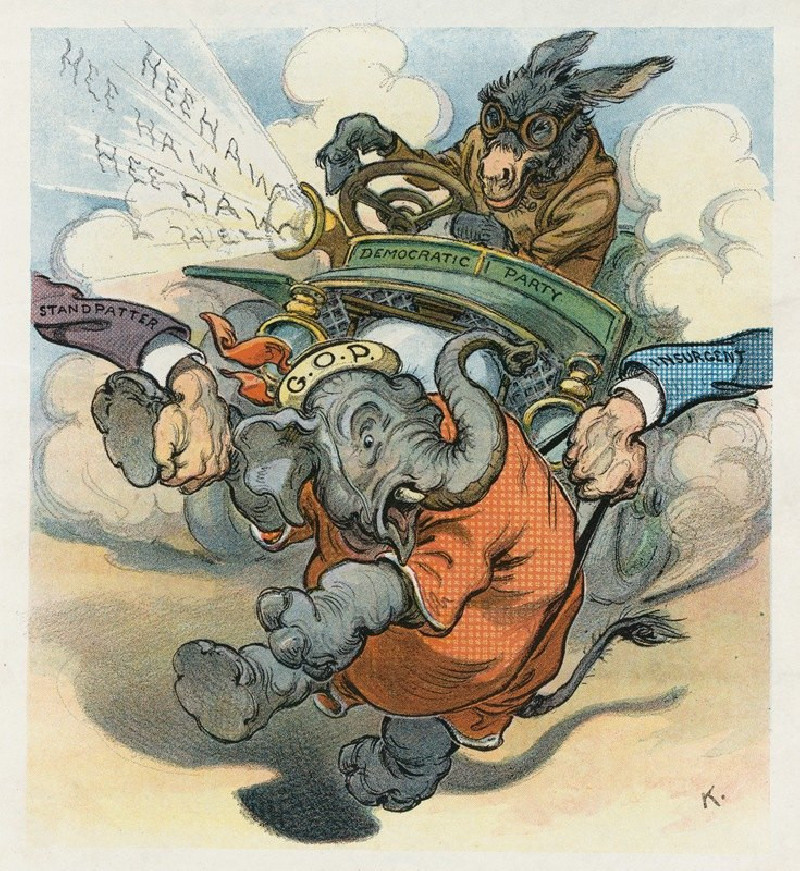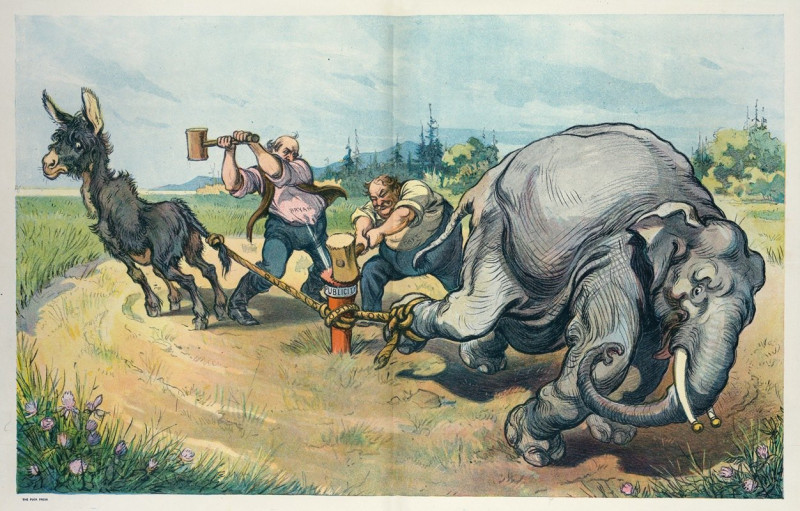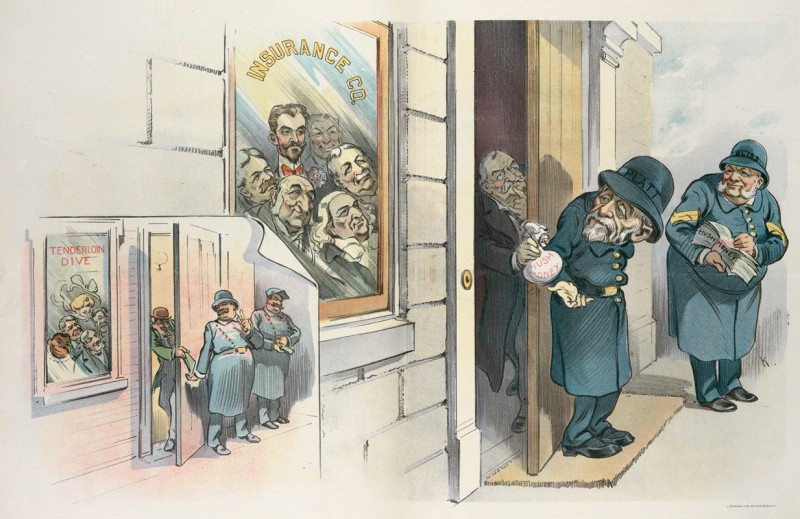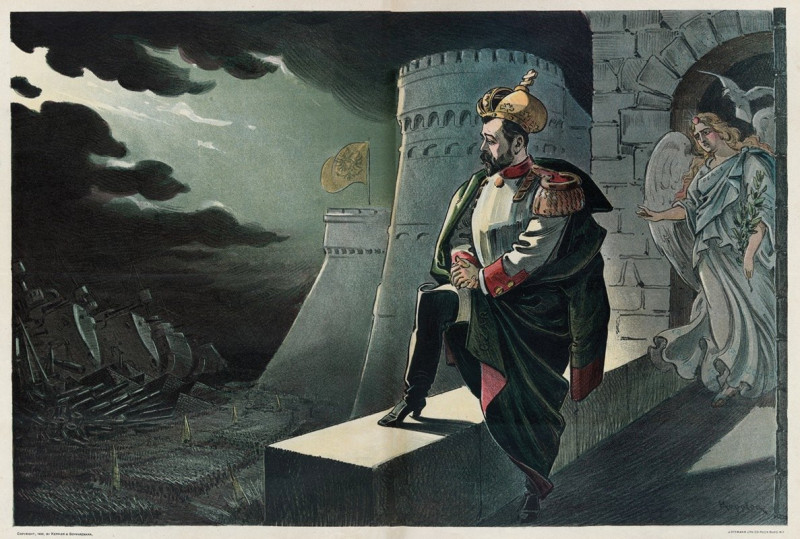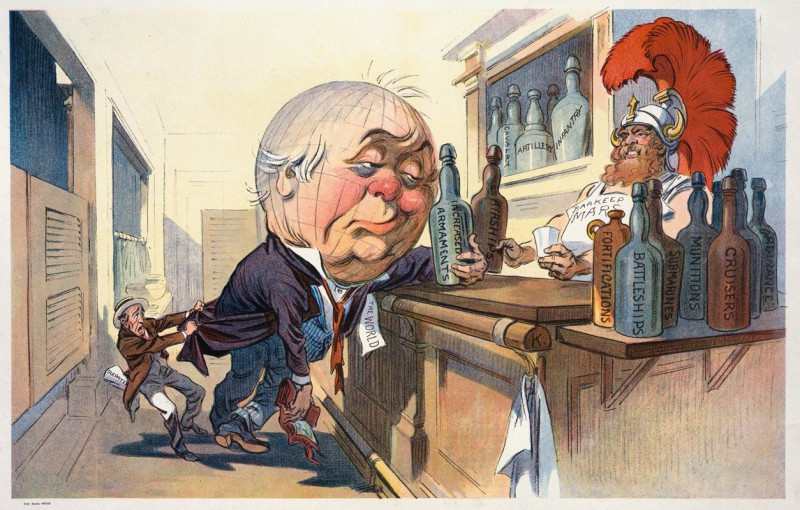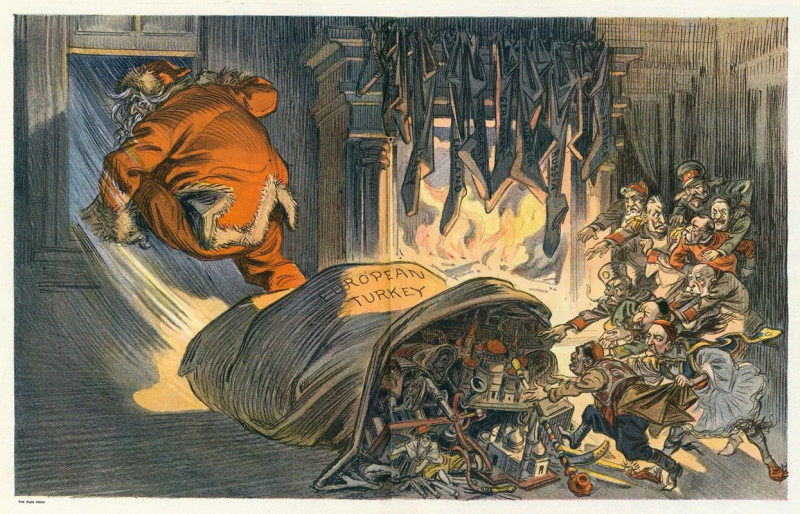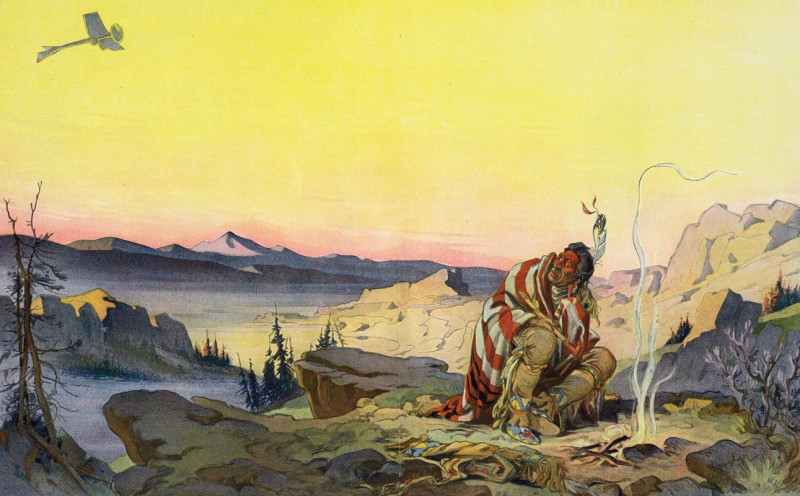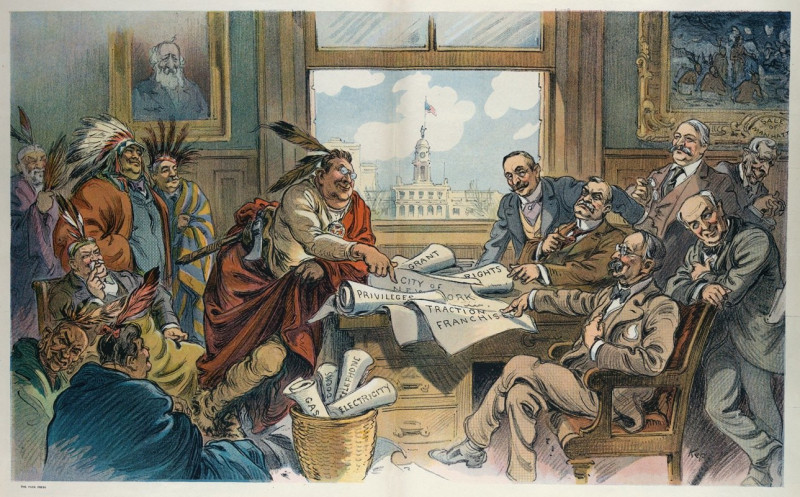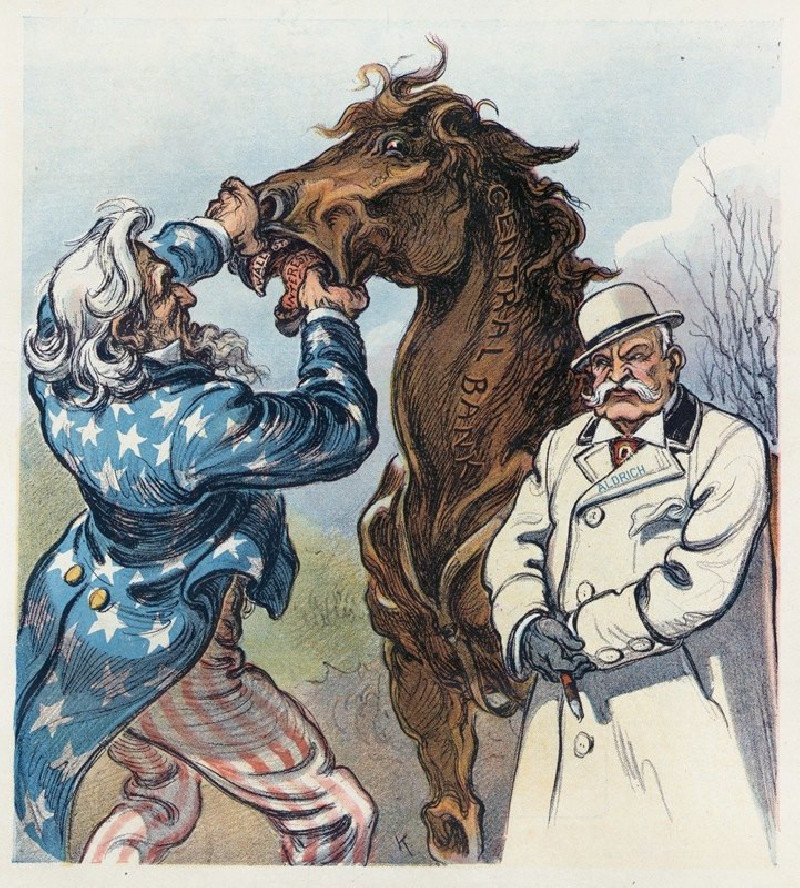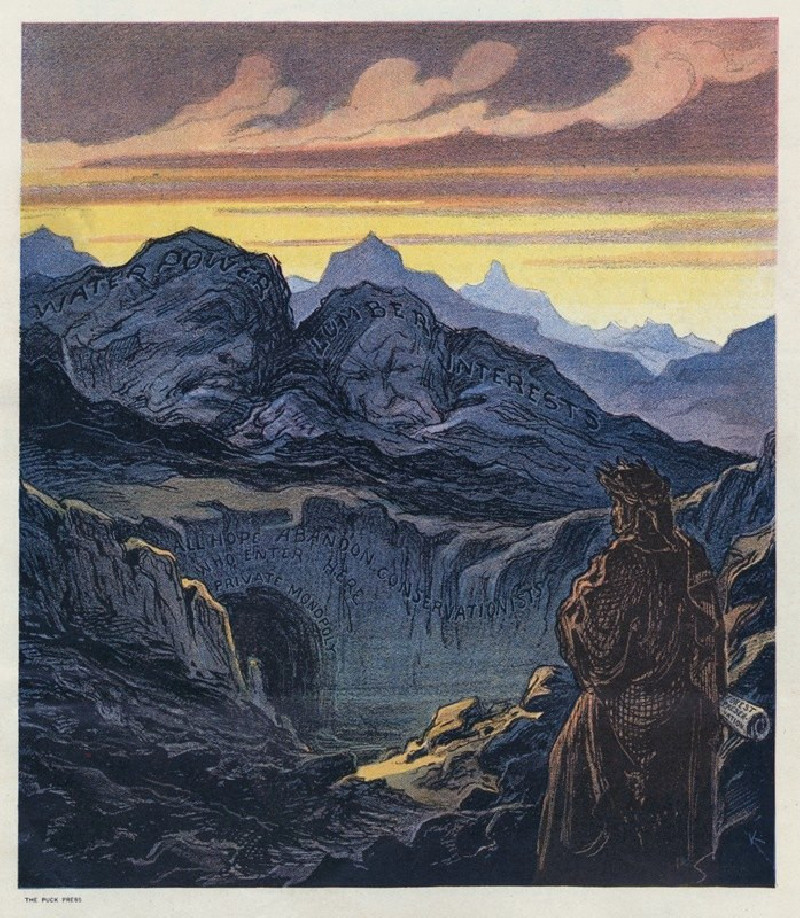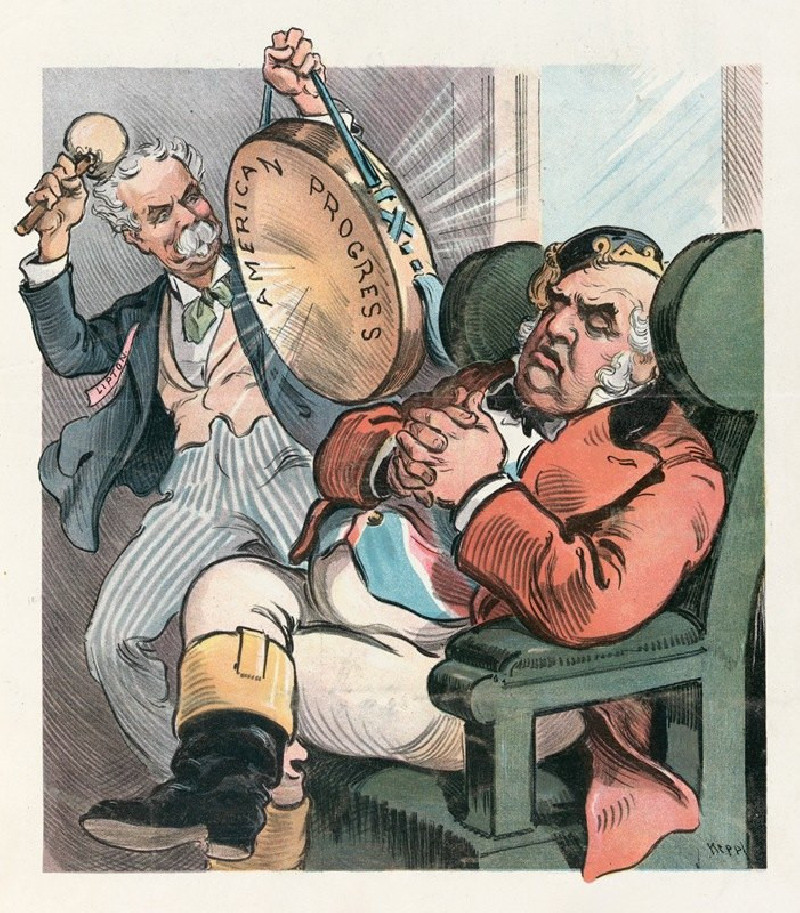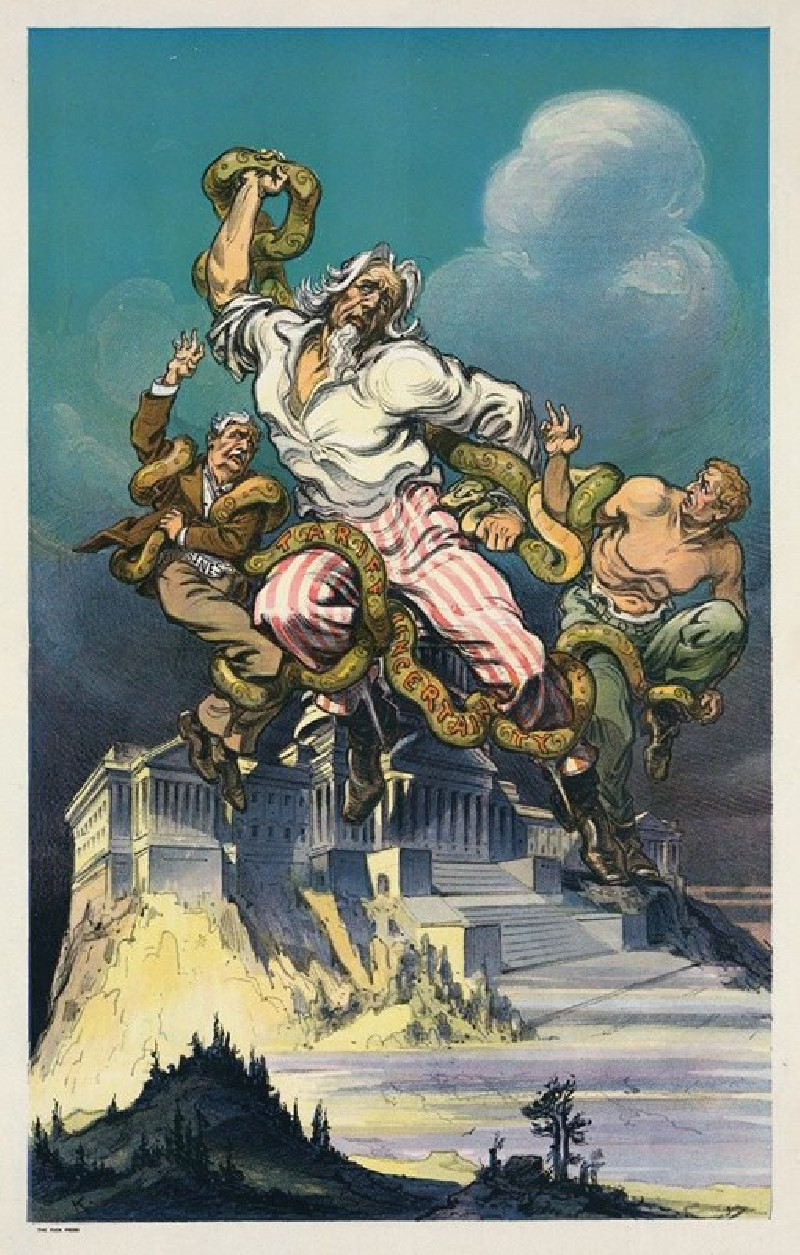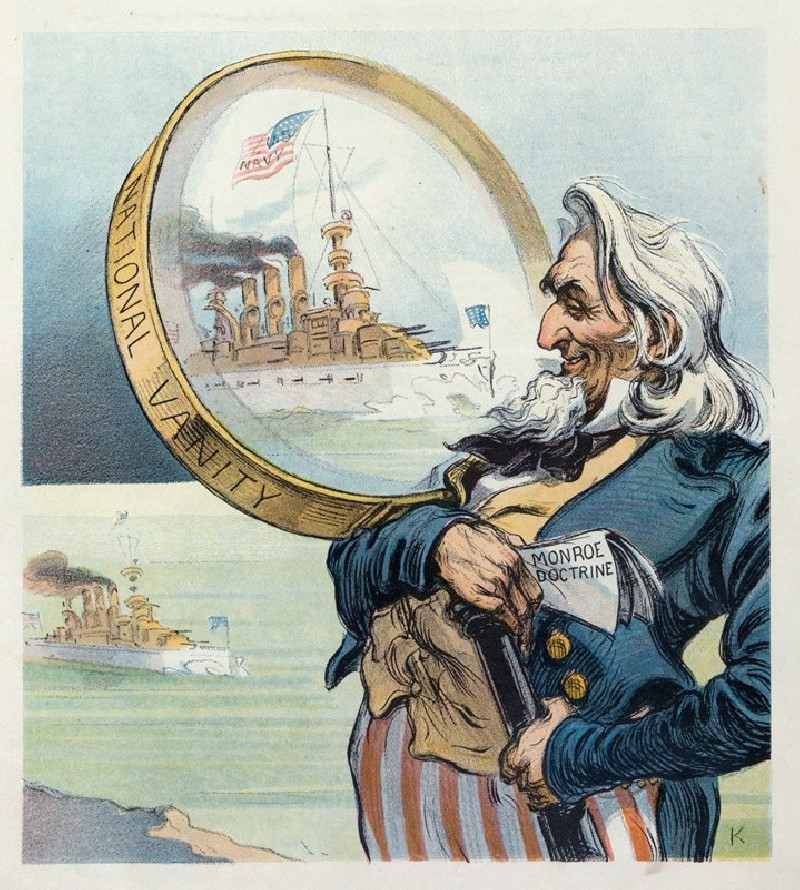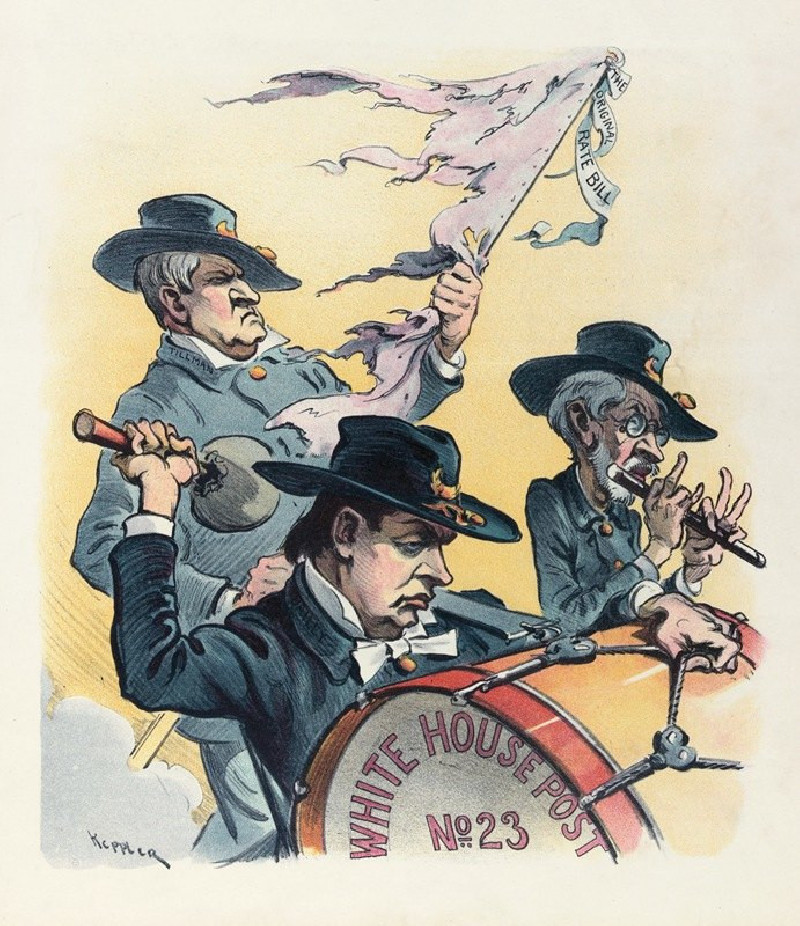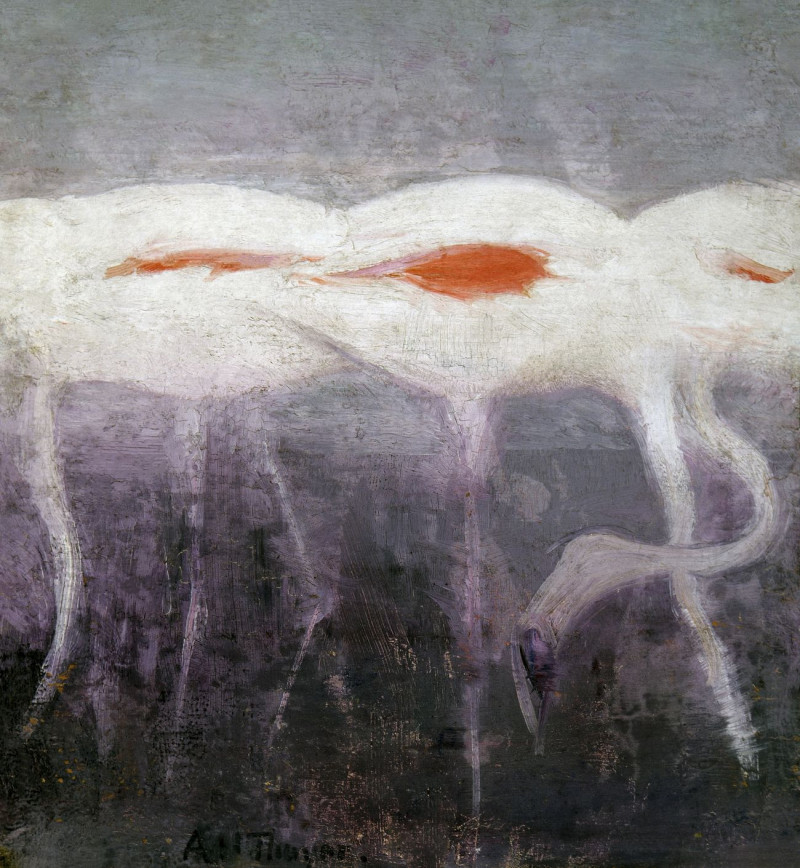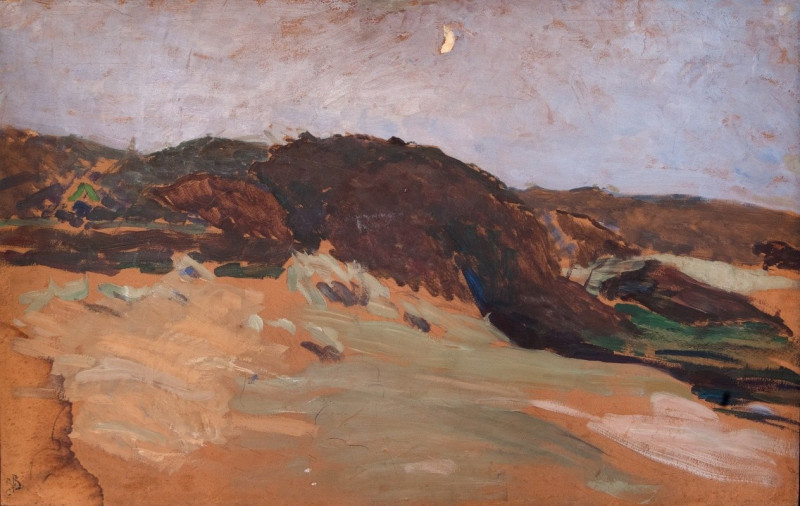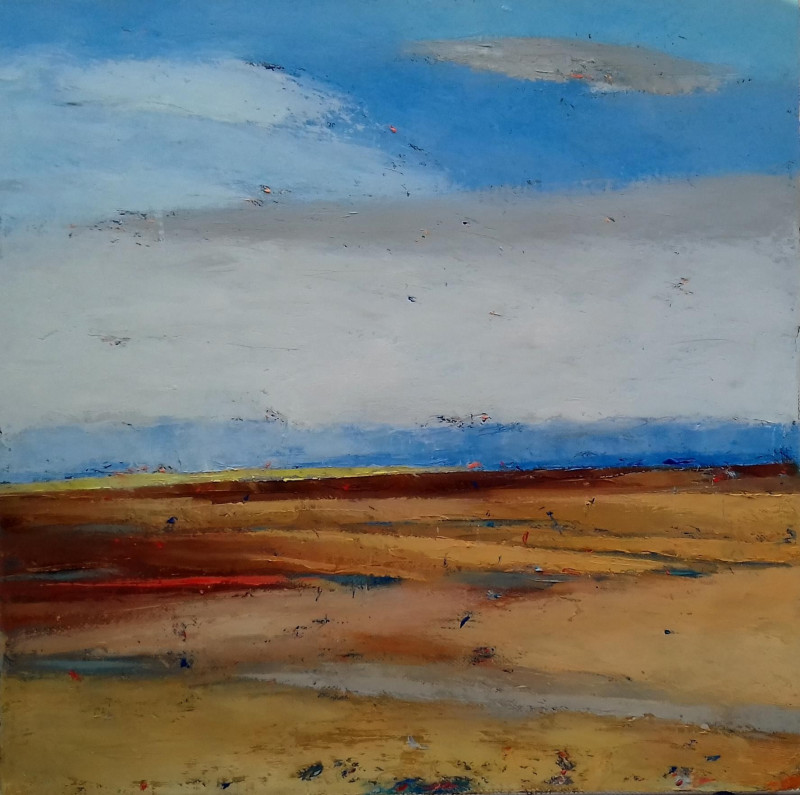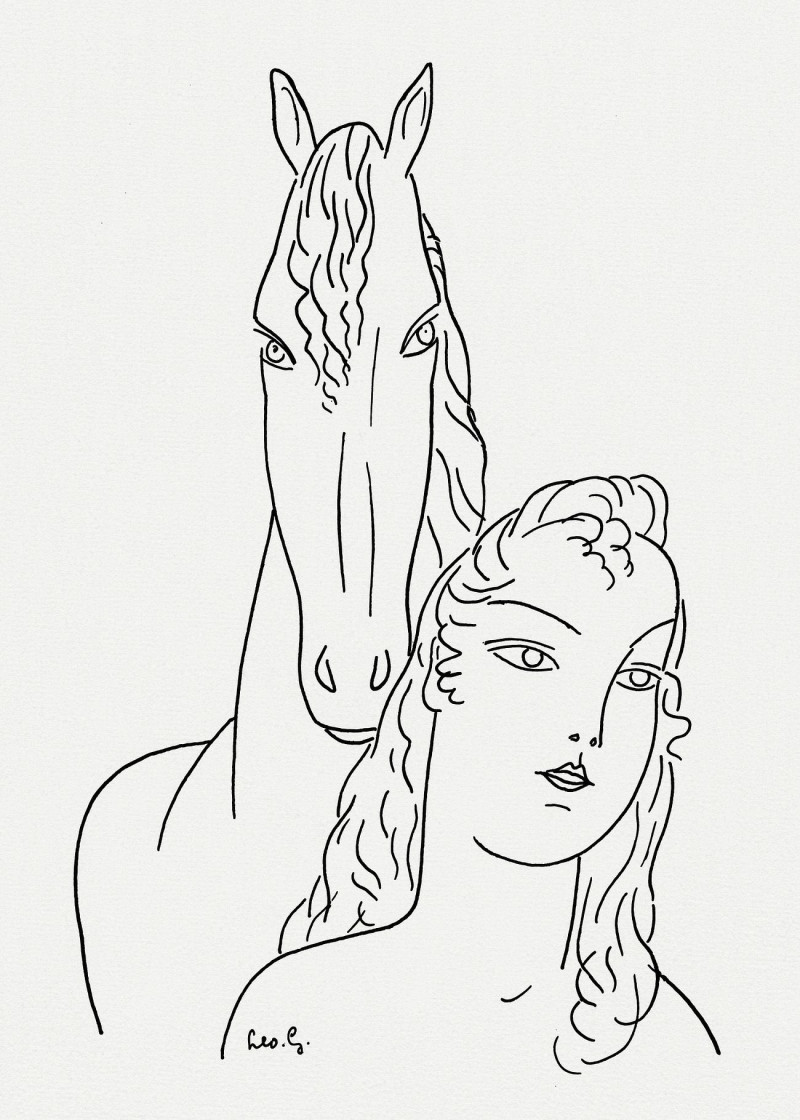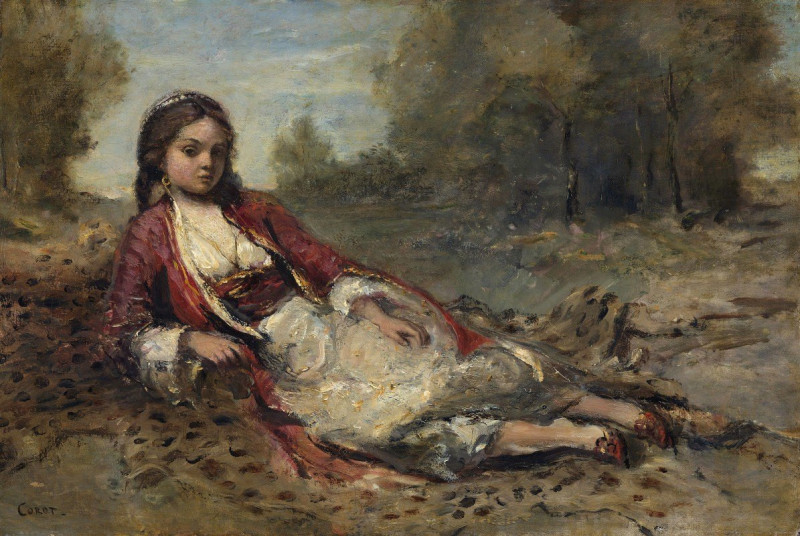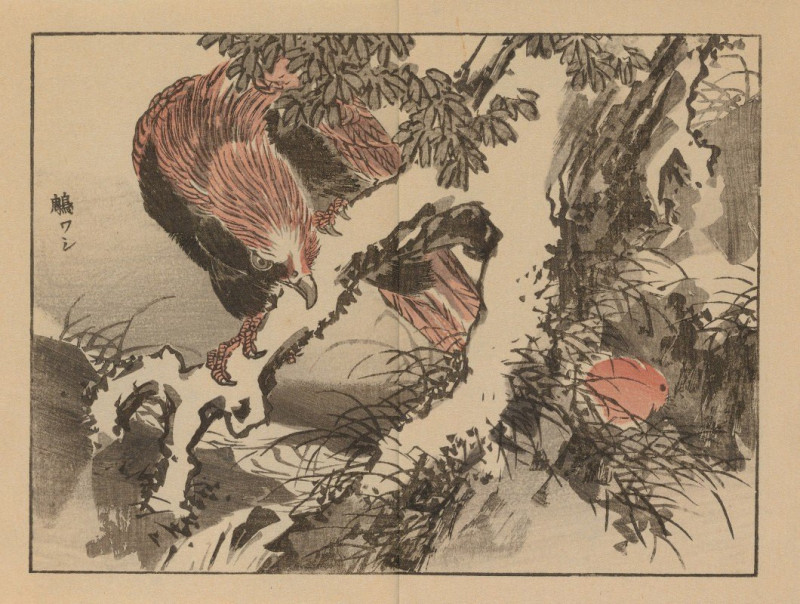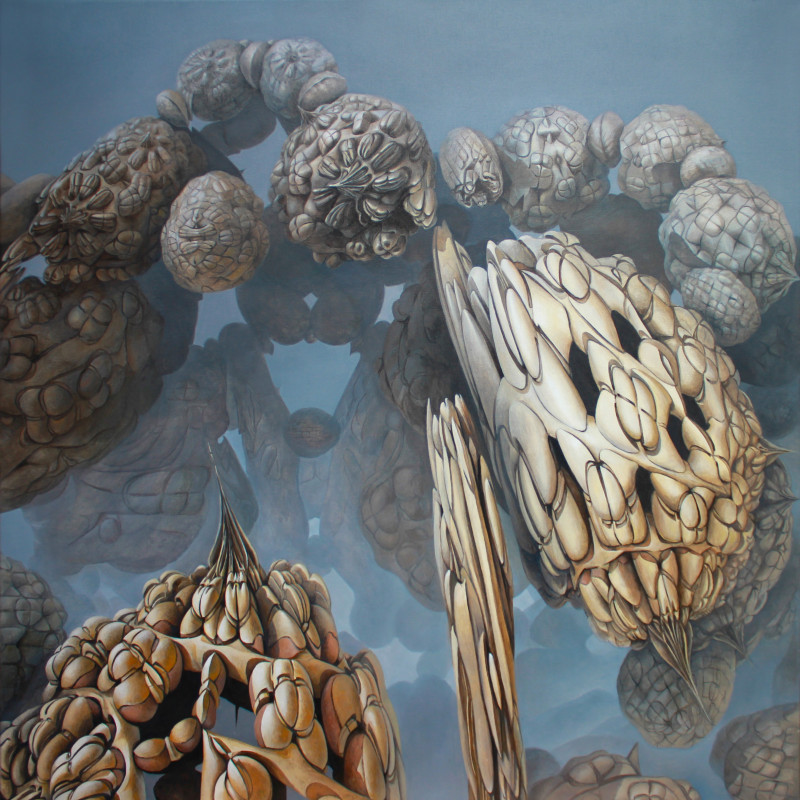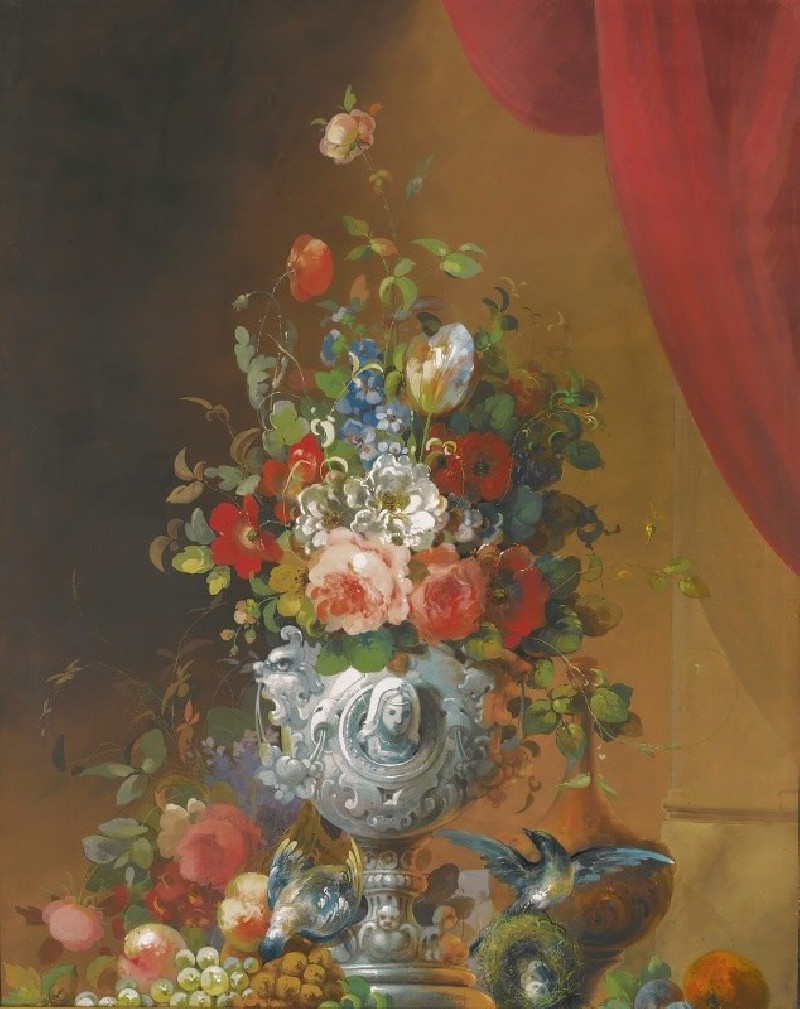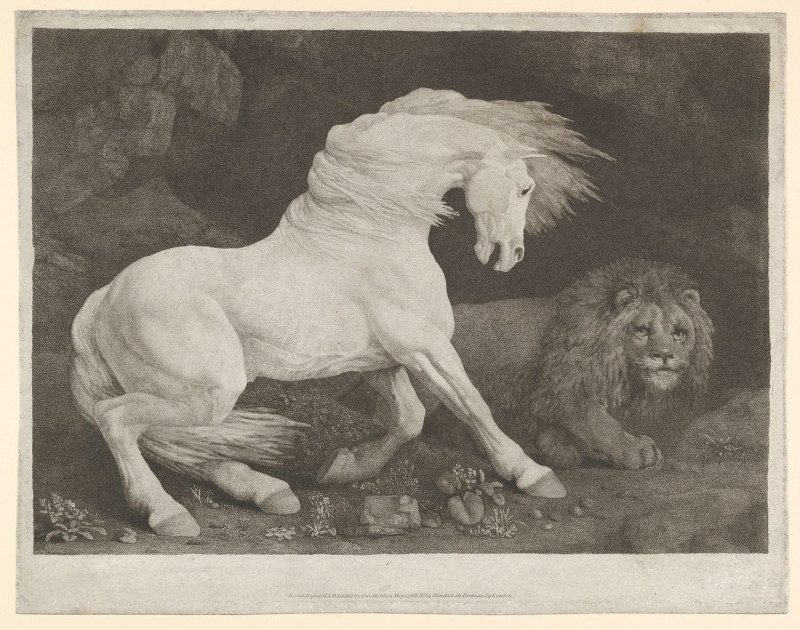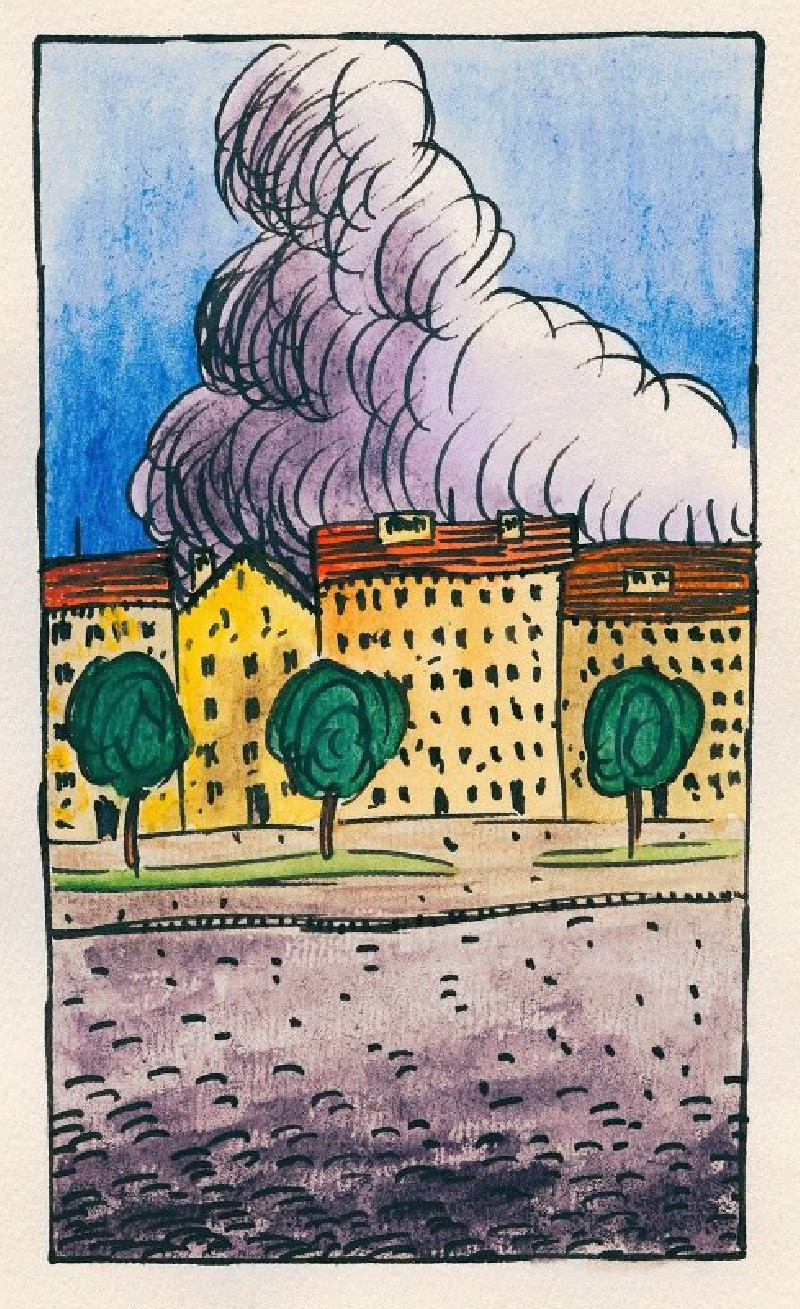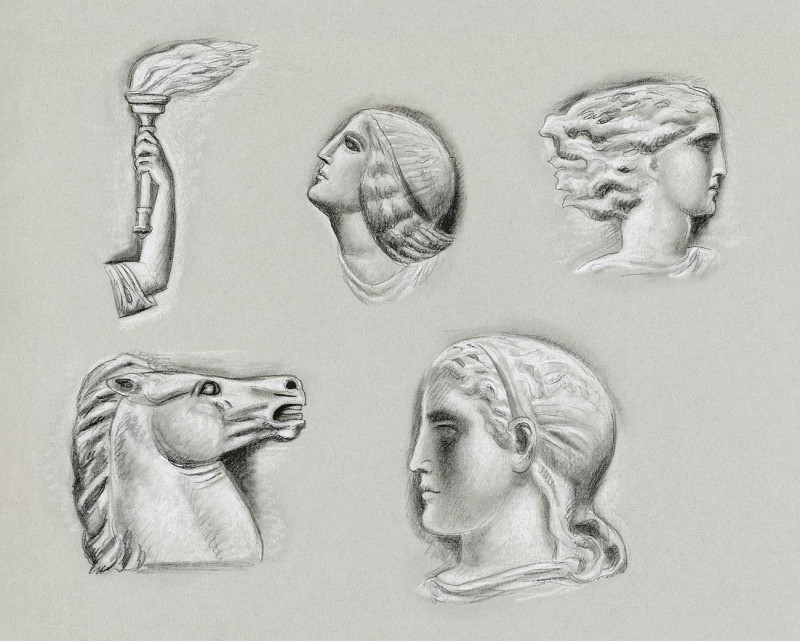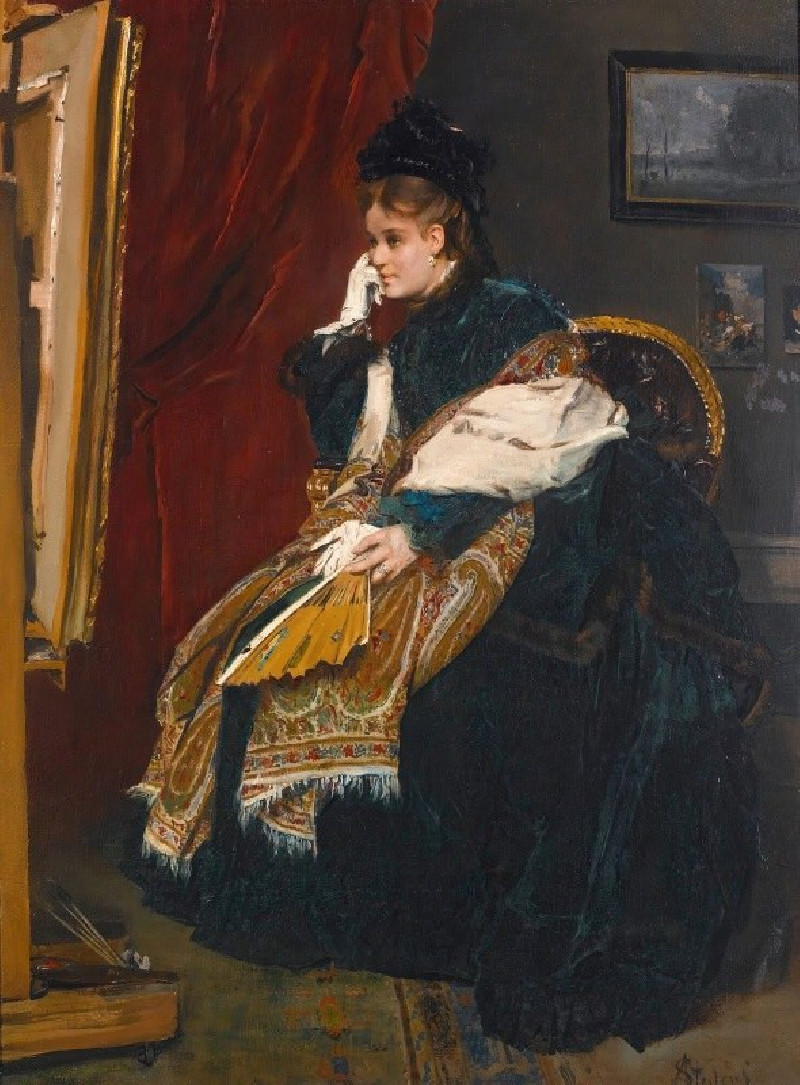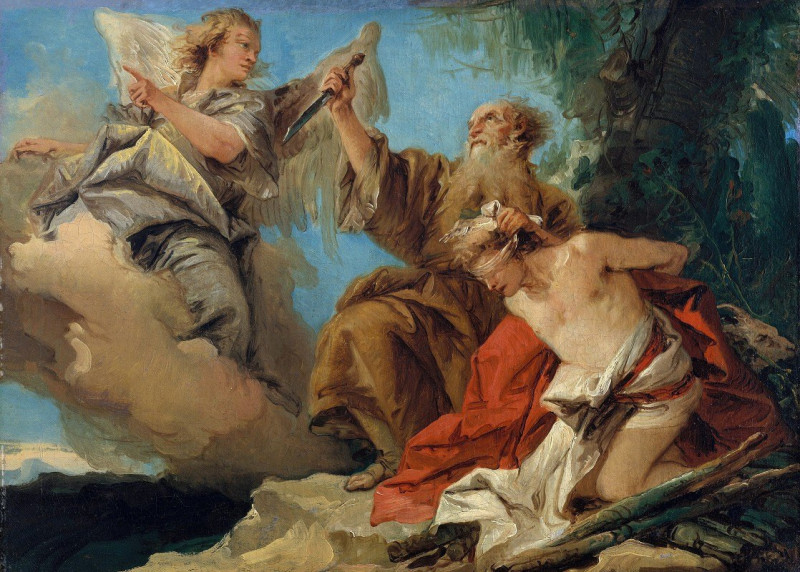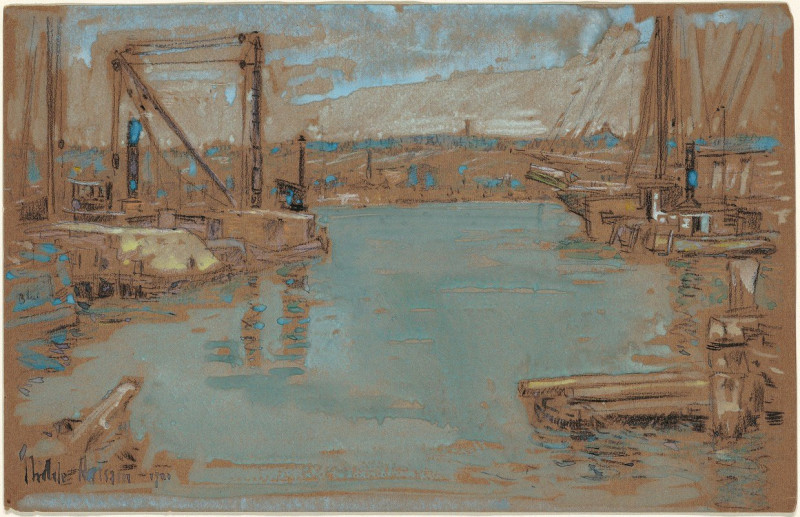The two-faced protectionist (1912)
Technique: Giclée quality print
Recommended by our customers
More about this artwork
Titled "The Two-Faced Protectionist" and created by Udo Keppler in 1912, this poignant piece of political commentary starkly illustrates the contradictory nature of protectionist policies in early 20th century America. In this vibrant and detailed painting, a corpulent figure, garbed in a dark suit and representing America, straddles a narrow body of water, presenting two large placards to two distinct groups.On the left, he addresses American workers at a bustling dock, waving a sign that reads, “To American Workingmen! Preserve the high tariff to protect yourselves from the competition of foreign cheap labor. The tariff you maintains for you the American standard of living.” This message outlines the protective rhetoric used to justify high tariffs, which were often claimed to safeguard domestic jobs and wages against the influx of cheaper foreign labor.To the right, a contradictory scene unfolds as the same figure beckons to foreign workers from a smog-covered ship with a placard stating, “To Foreign Labor: Come over to free America and work. High wages and steady employment. You will make more here in a week than you can there in a month.” Here, the painting captures the dual-faced character of American immigration and economic policies that both welcomed and exploited foreign labor.Keppler's artwork is a critical and satirical view of the protectionist economic policies of his time, emphasizing their inherent contradictions and the impact on both domestic and foreign workers.
Delivery
Returns
Udo J. Keppler, since 1894. known as Joseph Keppler, Jr., was an American political cartoonist, publisher, and Native American advocate. The son of cartoonist Joseph Keppler (1838–1894), who founded Puck magazine, the younger Keppler also contributed to cartoons, and after his father's death became co-owner of the magazine under the name Joseph Keppler. He was also a collector of Native American artifacts.

